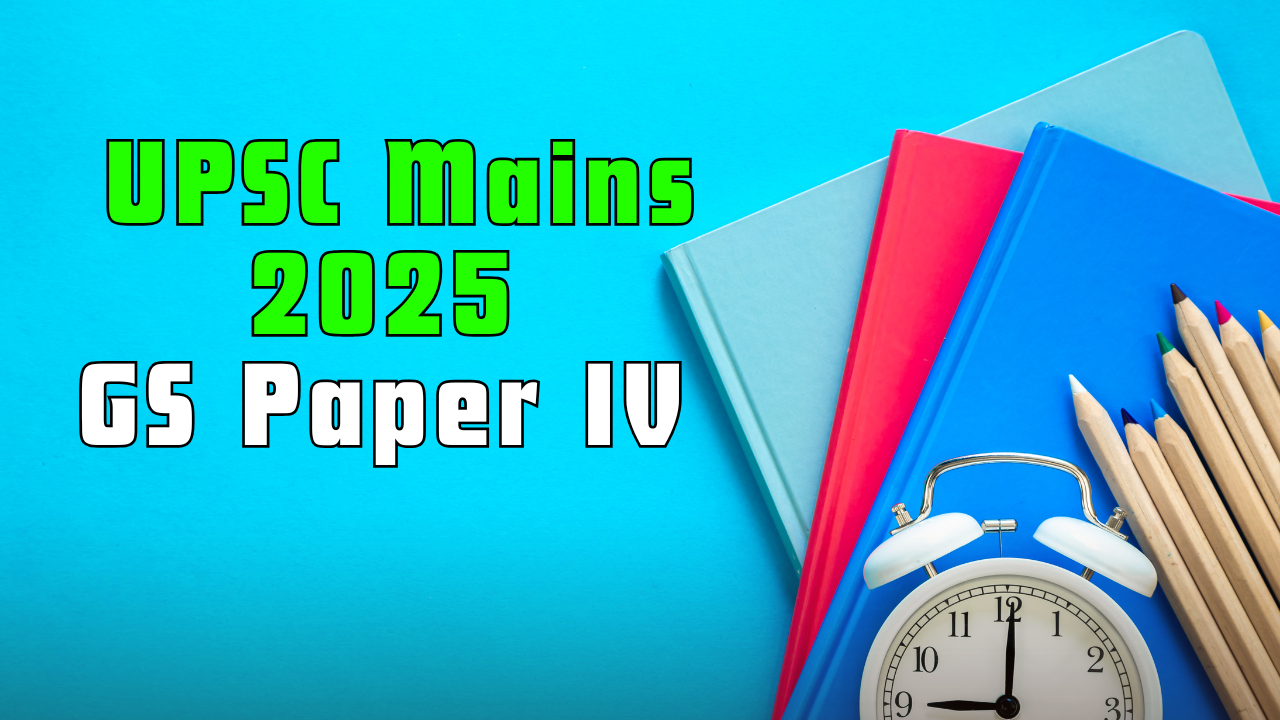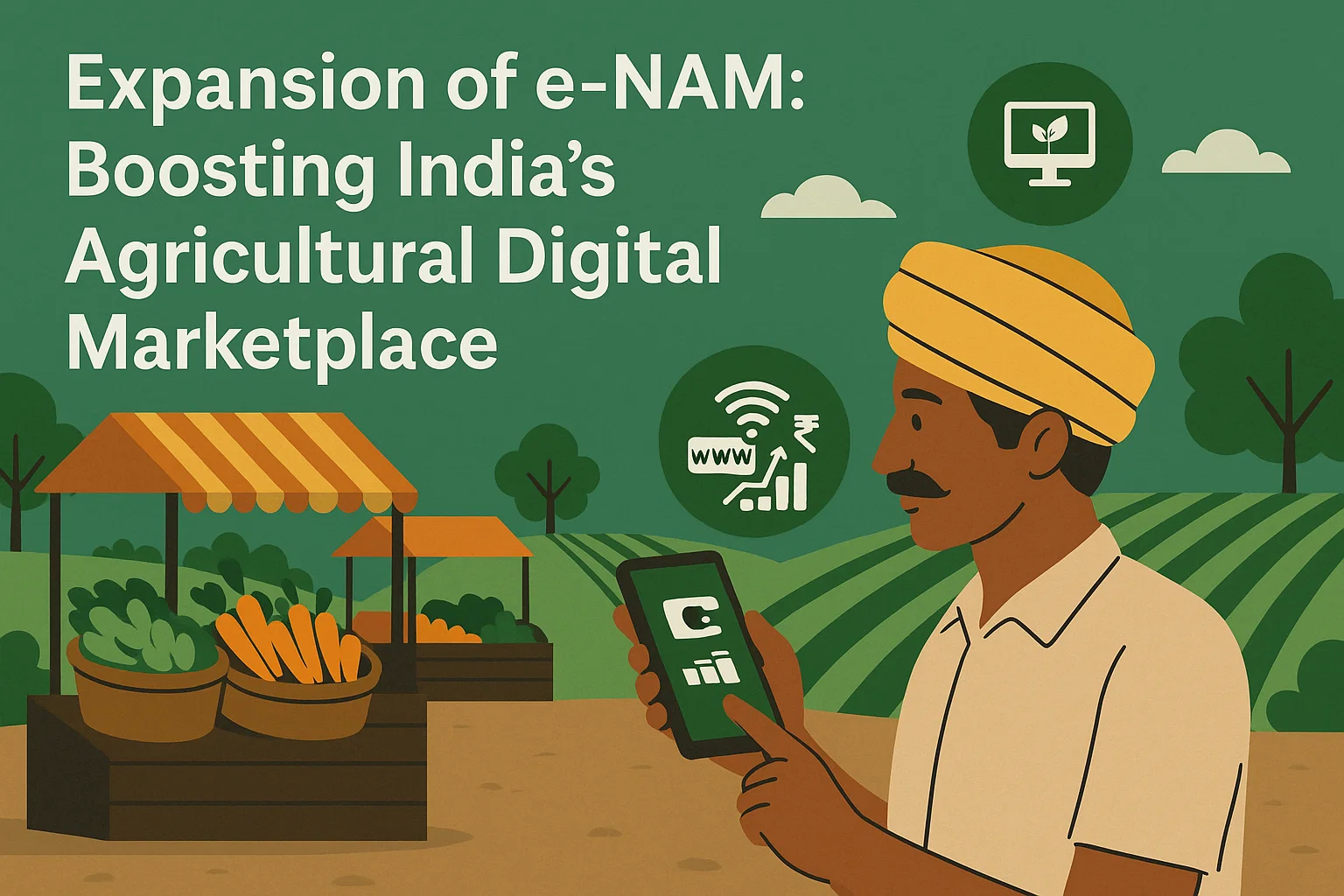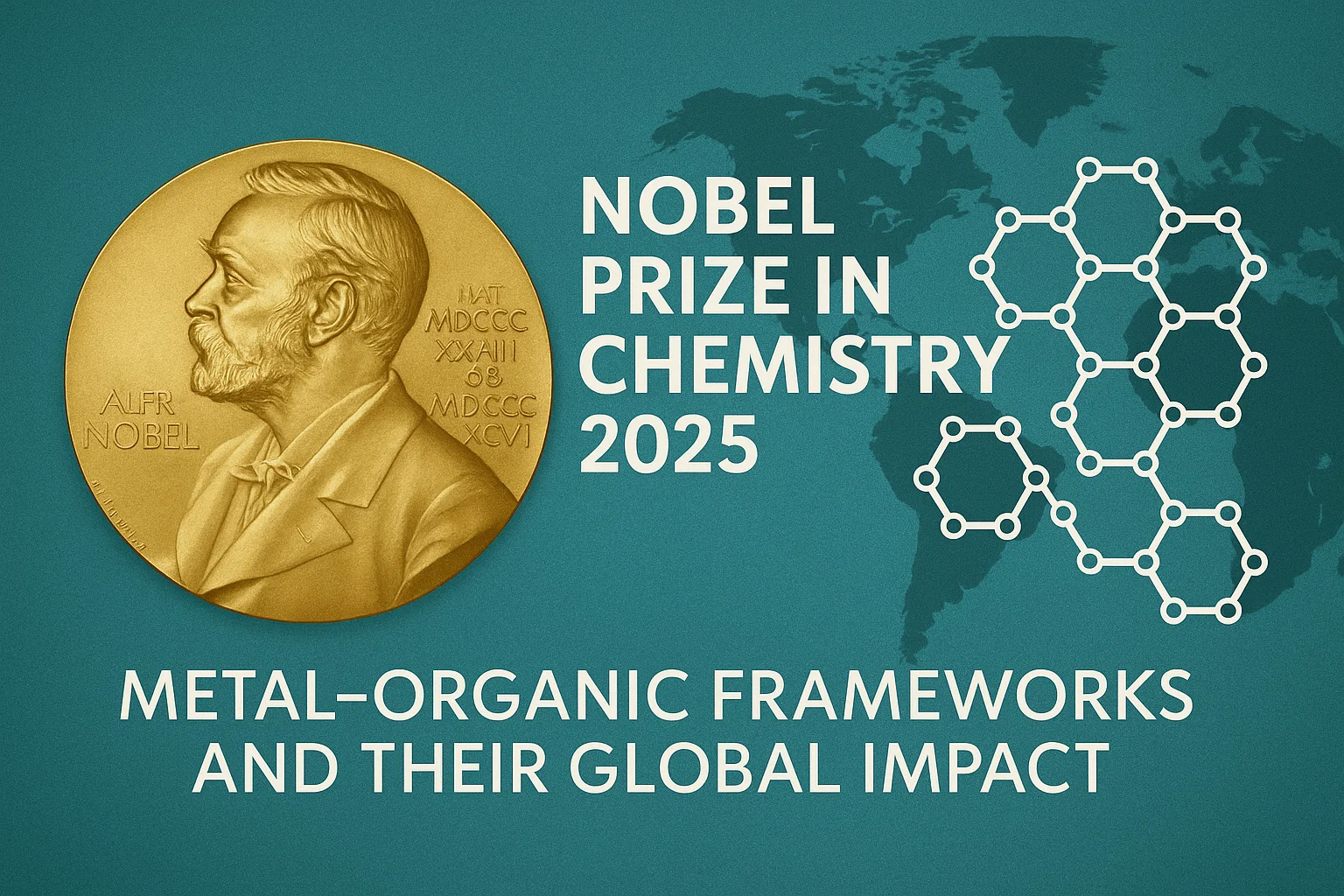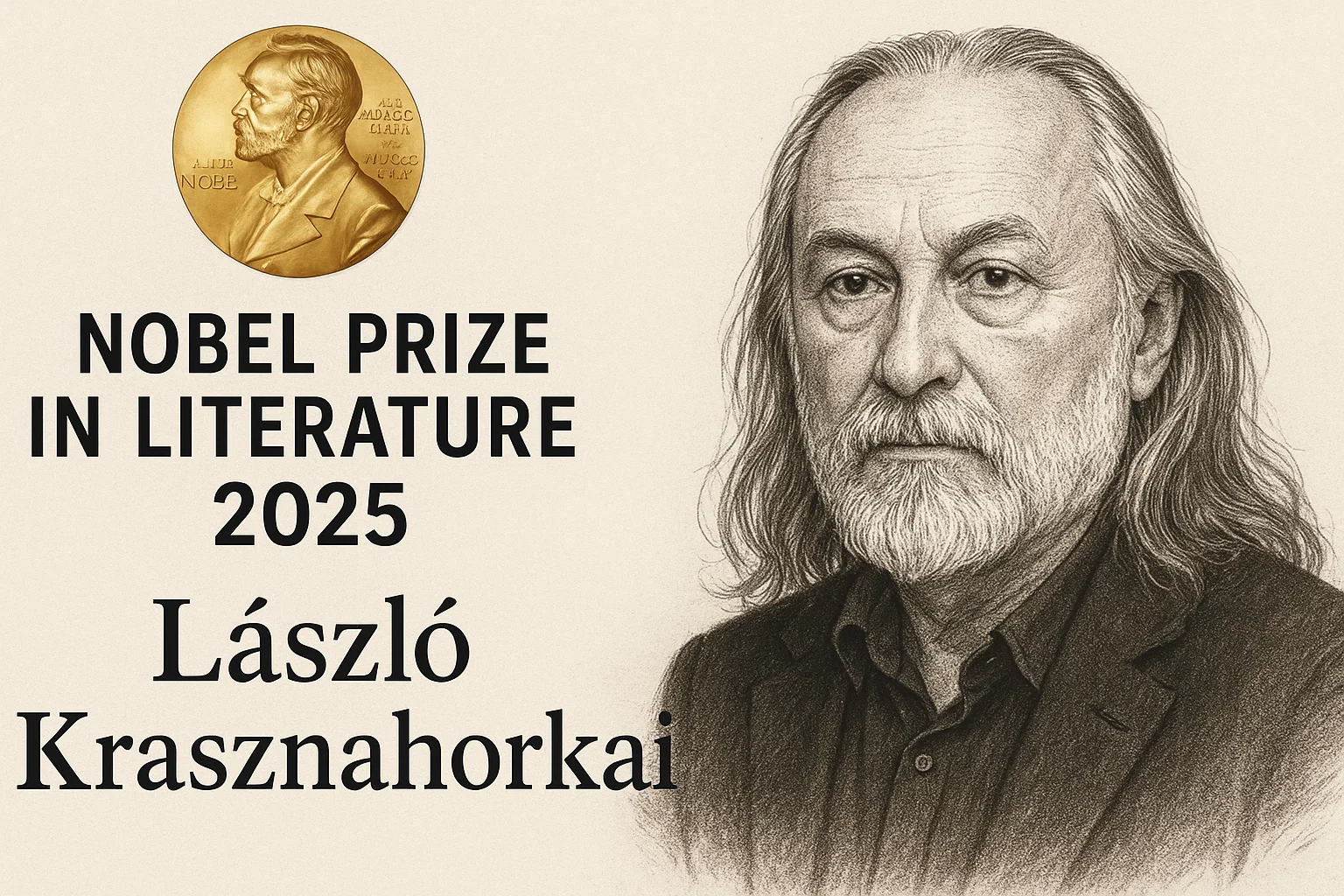UPSC Mains GS Paper IV 2025
UPSC Mains GS Paper IV 2025 (Ethics, Integrity & Aptitude) – Complete Question Paper and Detailed Analysis

Check UPSC Mains GS Paper IV 2025 (Ethics, Integrity & Aptitude) with complete question paper and detailed analysis. Understand trends, difficulty, and answer writing approach.
Introduction
UPSC Civil Services Mains Examination 2025 has once again tested aspirants’ ethical reasoning, moral philosophy, and practical decision-making skills through General Studies Paper IV (Ethics, Integrity, and Aptitude). This paper is not just about theoretical knowledge but also about the candidate’s ability to apply values like honesty, accountability, and compassion in governance and daily life.
The Ethics paper holds a crucial role in determining the suitability of aspirants for public service, as it reflects their capacity for impartial judgment, empathy for citizens, and integrity in administration. In this article, we present the complete UPSC Mains 2025 GS Paper IV question paper with a detailed analysis of each question. The analysis helps aspirants understand the demand of UPSC, evolving patterns, and the right strategies to frame rank-worthy answers.
Mains GS Paper IV 2025
Maximum Marks: 250 | Time Allowed: 3 Hours
The Ethics Paper (GS Paper IV) is one of the most decisive components of the UPSC Mains examination. It tests not only theoretical understanding but also application of ethical concepts in governance, administration, and personal conduct. Below is the detailed analysis of Section A of the paper.
Section A
Question 1(a)
In the present digital age, social media has revolutionised our way of communication and interaction. However, it has raised several ethical issues and challenges. Describe the key ethical dilemmas in this regard. (10 Marks)
Analysis:
This question connects with the syllabus portion on “ethical issues in media and society”. Candidates are expected to identify dilemmas such as privacy vs. transparency, freedom of expression vs. hate speech, misinformation vs. responsible communication, profit motive vs. public good, and echo chambers vs. diversity of thought. The answer must highlight that while social media democratises communication, it also raises issues of accountability, data ethics, and manipulation of public opinion.
Question 1(b)
“Constitutional morality is not a natural sentiment but a product of civil education and adherence of the rule of law.” Examine the significance of constitutional morality for public servant highlighting the role in promoting good governance and ensuring accountability in public administration. (10 Marks)
Analysis:
This relates to “ethical foundations of governance and probity”. Candidates should connect Dr. B.R. Ambedkar’s idea of constitutional morality with modern governance. Key points: civil servants must respect constitutional values (justice, liberty, equality, fraternity), ensure adherence to rule of law, avoid arbitrariness, and uphold citizens’ rights. Linking constitutional morality with good governance principles like transparency, accountability, responsiveness, and rule of law would enrich the answer.
Question 2(a)
Carl von Clausewitz once said, “War is a diplomacy by other means.” Critically analyse the above statement in the present context of contemporary geo-political conflict. (10 Marks)
Analysis:
This draws from the ethical dimension of international relations and global conflict. The candidate must explain Clausewitz’s idea of war as continuation of politics. In the current world, Russia-Ukraine war, Israel-Palestine conflict, and Indo-China tensions exemplify how military power is often used when diplomacy fails. Ethical issues involve humanitarian crisis, sovereignty violations, nuclear deterrence, and moral responsibility of nations. Critical analysis must balance Clausewitz’s realist view with modern emphasis on peaceful conflict resolution, UN Charter, and Gandhian non-violence.
Question 2(b)
Keeping the national security in mind, examine the ethical dilemmas related to controversies over environmental clearance of development projects in ecologically sensitive border areas in the country. (10 Marks)
Analysis:
This falls under “ethical concerns in environment and development”. Candidates must highlight dilemmas: security vs. sustainability, development vs. displacement, infrastructure urgency vs. ecological balance. Example: road-building in Himalayas for defense readiness vs. landslide and biodiversity loss. Civil servants face conflict between short-term security needs and long-term ecological protection. Ethical frameworks like sustainable development, intergenerational equity, and precautionary principle should be cited.
Question 3(a)
“Those who in trouble untroubled are, Will trouble trouble itself.” – Thiruvalluvar (10 Marks)
Analysis:
This quotation tests attitude, emotional intelligence, and resilience. Candidates should interpret it as the value of inner calm and composure during adversity. In administration, a civil servant who remains calm under crisis can manage situations better, inspire confidence, and reduce panic. It connects with qualities of leadership, patience, and stress management.
Question 3(b)
“The greatest discovery of my generation is that a human being can alter his life by altering his attitudes.” – William James (10 Marks)
Analysis:
This relates to attitude, values, and their role in behaviour. The quotation emphasizes positive mindset and attitude change as a driver of personal and professional transformation. For civil servants, optimism, growth mindset, and public-oriented attitude can improve service delivery and ethical conduct. Example: reform-oriented bureaucrats bringing change by changing their attitude towards governance challenges.
Question 3(c)
“The strength of a society is not in its laws, but in the morality of its people.” – Swami Vivekananda (10 Marks)
Analysis:
This links with moral values in public and private relationships. Laws are external enforcements; morality is internal discipline. A society survives not merely on legal codes but on values like honesty, compassion, and justice. Candidates should discuss how self-regulation and ethical citizens reduce corruption, strengthen democracy, and ensure harmony. Examples: success of community-led initiatives, Gandhian ethical mass movements.
Question 4(a)
“For any kind of social re-engineering by successfully implementing welfare schemes, a civil servant must use reason and critical thinking in an ethical framework.” Justify this statement with suitable examples. (10 Marks)
Analysis:
This connects with aptitude and foundational values for civil services. Candidates must stress that welfare schemes face challenges like leakages, resistance, and conflicting interests. A civil servant must apply rational decision-making, cost-benefit analysis, ethical reasoning, and critical evaluation of policies. Example: Direct Benefit Transfer (DBT) reduces corruption when implemented with rational planning and ethical concern for the poor.
Question 4(b)
What are the major teachings of Mahavir? Explain their relevance in the contemporary world. (10 Marks)
Analysis:
This relates to Indian moral thinkers and philosophers. Mahavir’s teachings: Ahimsa (non-violence), Satya (truth), Aparigraha (non-possession), Anekantavada (multiplicity of viewpoints), Brahmacharya (self-discipline). Contemporary relevance includes non-violence against environmental destruction, tolerance in plural societies, reducing consumerism, and promoting peace. Linking Jain philosophy to climate ethics, communal harmony, and sustainable living enriches the answer.
Question 5(a)
“One who is devoted to one’s duty attains highest perfection in life.” Analyse this statement with reference to sense of responsibility and personal fulfilment as a civil servant. (10 Marks)
Analysis:
This links with duties, responsibility, and integrity in public administration. Devotion to duty aligns with the Gita’s principle of Nishkama Karma. For a civil servant, responsibility towards citizens, fairness in decision-making, and ethical performance lead not only to administrative success but also inner satisfaction and self-fulfilment. Example: honest officers who derive respect and pride from their service.
Question 5(b)
To achieve holistic development goal, a civil servant acts as an enabler and active facilitator of growth rather than a regulator. What specific measures will you suggest to achieve this goal? (10 Marks)
Analysis:
This corresponds with role of civil servants in democracy. Candidates should stress shift from control-oriented bureaucracy to citizen-centric governance. Measures: participatory decision-making, use of digital governance, capacity building of stakeholders, reducing red-tapism, public-private partnerships, and inclusive policies. Example: Aspirational Districts Programme where administrators enable communities rather than just regulate.
Question 6(a)
It is said that for an ethical work culture, there must be code of ethics in place in every organisation. To ensure value-based and compliance-based work culture, what suitable measures would you adopt in your work place? (10 Marks)
Analysis:
This is from ethical work culture and probity in governance. Code of ethics sets principles like integrity, impartiality, accountability. Measures: ethics training, whistle-blower protection, transparent grievance redressal, performance audits, reward for ethical behaviour, and leadership by example. Candidates should connect both compliance (rules, laws) and values (honesty, service orientation).
Question 6(b)
India is an emerging economic power of the world as it has recently secured the status of fourth largest economy of the world as per IMF projection. However, it has been observed that in some sectors, allocated funds remain either under-utilised or misutilised. What specific measures would you recommend to stop leakages and gaining the status of third largest economy of the world in near future? (10 Marks)
Analysis:
This connects with probity in governance and accountability. Issues: fund diversion, corruption, inefficiency. Measures: strict monitoring, outcome-based budgeting, e-governance tools (PFMS, DBT), social audits, transparency portals, independent oversight institutions, performance-linked incentives. Linking probity in fund utilisation with India’s economic aspirations would be a strong approach.
Section B – Case Study Analysis
Q7. The Dilemma of Duty vs Personal Loss (Vijay’s case)
Vijay was Deputy Commissioner of remote district of Hilly Northern State of the country for the last two years. In the month of August heavy rains lashed the complete state followed by cloud burst in the upper reaches of the said district. The damage was very heavy in the complete state especially in the affected district. The complete road network and telecommunication were disrupted and the buildings were damaged extensively. People’s houses have been destroyed and they were forced to stay in open. More than 200 people have been killed and about 5000 were badly injured. The Civil Administration under Vijay got activated and started conducting rescue and relief operations. Temporary shelter camps and hospitals were established to provide shelter and medical facilities to the homeless and injured people. Helicopter services were pressed in, for evacuating sick and old people from remote areas. Vijay got a message from his hometown in Kerala that his mother was seriously sick. After two days Vijay received the unfortunate message that his mother has expired. Vijay has no close relative except one elder sister who was US citizen and staying there for last several years. In the meantime, the situation in the affected district deteriorated further due to resumption of heavy rains after a gap of five days. At the same time, continuous messages were coming on his mobile from his hometown to reach at the earliest for performing last rites of his mother.
(a) What are the options available with Vijay ?
(b) What are the ethical dilemma being faced by Vijay ?
(c) Critically evaluate and examine each of these options identified by Vijay.
(d) Which of the options, do you think, would be most appropriate for Vijay to adopt and why ?
(Answer in 250 words)
20
(a) Options available with Vijay:
- Leave immediately for Kerala to perform his mother’s last rites.
- Stay in the district and continue leading disaster management operations.
- Delegate responsibility to subordinates while briefly visiting Kerala.
- Request temporary arrangement from higher authorities for relief operations.
(b) Ethical dilemmas:
- Duty vs Personal Responsibility: Disaster relief vs filial piety.
- Professional Ethics vs Family Values: Public duty as DC vs moral duty as a son.
- Consequentialism vs Deontology: Greatest good for the greatest number vs duty towards one’s mother.
(c) Critical evaluation of options:
- Leaving immediately: Fulfils family duty but risks chaos in relief operations, possible administrative collapse.
- Staying back fully: Upholds highest public service ethos but denies basic moral duty of a son. May cause personal regret.
- Delegating & attending last rites: Balances both duties, provided strong second-line leadership exists. Risk: morale of team may suffer if seen as abandoning at critical hour.
- Temporary higher authority arrangement: Formal, ethical, and legally correct. But coordination gaps may emerge.
(d) Most appropriate option:
Option 3 (delegate to competent subordinates while briefly attending mother’s last rites) with prior approval from higher authorities is most balanced. It honours both professional responsibility and personal morality, reflects compassion, ensures continuity of governance, and demonstrates ethical leadership under crisis.
Q8. Forest Clearance for Housing – Human vs Environment
In line with the Directive Principles of State Policy enshrined in the Indian Constitution, the government has a constitutional obligation to ensure basic needs – Roti, Kapda aur Makan (Food, Clothes and Shelter) – for the under-privileged. Pursuing this mandate, the district administration proposed clearing a portion of forest land to develop housing for the homeless and economically weaker sections of the society.
The proposed land, however, is an ecologically sensitive zone densely populated with age-old trees, medicinal plants and vital biodiversity. Besides, these forests help to regulate micro-climate and rainfalls, provide habitat for wildlife, support soil fertility and prevent land/soil erosion and sustain livelihoods of tribal and nomadic communities.
Inspite of the ecological and social costs, the administration argues in favour of the said proposal by highlighting that this very initiative addresses fundamental human rights as a critical welfare priority. Besides, it fulfils the government’s duty to uplift and empower the poor, through inclusive housing development. Further, these forest areas have become unsafe due to wild-animal threats and recurring human-wild life conflicts. Lastly, clearing forest-zones may help to curb anti-social elements allegedly using these areas as hideouts, thereby enhancing law and order.
(a) Can deforestation be ethically justified in the pursuit of social welfare objectives like, housing for the homeless ?
(b) What are the socio-economic, administrative and ethical challenges in balancing environmental conservation with human development ?
(c) What substantial alternatives or policy interventions can be proposed to ensure that both environmental integrity and human dignity are protected ?
(Answer in 250 words) 20
(a) Ethical justification of deforestation for housing:
- On face value, housing for homeless fulfils Directive Principles of State Policy (Art. 39, 41, 47).
- But environmental justice (Art. 48A, 51A(g)) and rights of future generations forbid reckless exploitation.
- Hence, deforestation cannot be ethically justified when alternatives exist.
(b) Challenges in balancing human development & environment:
- Socio-economic: Housing for poor vs livelihood loss of tribals.
- Administrative: Policy pressure, short-term populism vs sustainable planning.
- Ethical: Anthropocentrism (human priority) vs ecocentrism (nature’s intrinsic value).
(c) Substantial alternatives/policy interventions:
- Vertical housing on non-forest land.
- Public–Private Partnerships for affordable housing on urban fringes.
- Use of barren/ degraded land instead of ecologically sensitive zones.
- Eco-sensitive planning: Incorporate tribal rights, afforestation offsets, green technology.
- Integrated approach: Balance Art. 21 (right to life & environment) with DPSPs.
Balanced approach: Respect human dignity without undermining environmental integrity – aligns with Gandhian trusteeship and sustainable development.
Q9. Subash’s Ethical Quandary – Nepotism & Conflict of Interest
Subash is Secretary, PWD in the State Government. He is a senior officer, known for his competence, integrity and dedication to work. He enjoys the trust and confidence of Minister Incharge of PWD and Programme Implementation. As a part of his job profile, he is responsible for policy formulation, execution of projects relating to infrastructure initiatives in the State. Besides, he oversees the technical and administrative aspects relating to planning, designing and construction etc.
Subash’s Minister is an important Minister in the state and significant growth in urban infrastructure development and road network has been registered during his tenure. He is very keen for launching of ambitious road construction project in the near future.
Subash is in regular touch with the Minister and is working various modalities of road construction project. Regular meetings, interactions and presentations are made by him to the Minister before a formal public announcement of the project is made by the Minister. Subash’s only son Vikas is in real estate business. His son from his own sources is aware that a mega road project is on the anvil and announcement in this regard is expected anytime. He is very keen to know from his father the exact location of the upcoming project. He knows that there would be quantum jump in the prices of land in the vicinity. Buying land at this stage at cheaper prices would pay him rich dividends. He is pleading with him (his father) day in and day out to share him location of the proposed project. He assured him that he would handle the matter discreetly as it would not attract any adverse notice as he in the normal course, keeps on buying land as a part of his business. He feels pressurised because of constant pleadings by his son.
Another significant aspect of the matter pertained to the extra/undue interest in the above project by the Minister PWD. His nephew was also having big infrastructure project company. In fact, the Minister has also introduced his nephew to him and indicated to him to take care of his nephew’s business interest in the forthcoming project. The Minister encouraged him to act fast in the matter as early announcement and execution of mega road project would enhance his status in the party and public life.
In the above backdrop, Subash is in a fix as to the future course of action.
(a) Discuss the ethical issues involved in the case.
(b) Critically examine the options available to Subash in the above situation.
(c) Which of the above would be most appropriate and why ?
(Answer in 250 words) 20
(a) Ethical issues:
- Conflict of interest: Family benefit vs public duty.
- Integrity vs Nepotism: Pressure from son & minister.
- Transparency vs Corruption: Insider trading of project location.
- Political interference: Minister pushing nephew’s company.
(b) Options available:
- Disclose project location to son – violates integrity, unfair trade practice.
- Favour minister’s nephew’s firm – unethical, against public trust.
- Maintain strict confidentiality & fairness – ethically sound, professionally correct.
- Seek guidance from higher authorities / vigilance wing if pressure escalates.
(c) Most appropriate:
Option 3 – uphold confidentiality, transparency, and public trust. Subash must recuse from personal conflict of interest (inform superiors of family business) and adhere to impartial bidding process. This reflects probity, objectivity, impartiality – core values of public service.
Q10. Rajesh’s Dilemma – Rules vs Pressure of Boss & Promotion
Rajesh is a Group A officer with nine years of service. He is posted as Administrative Officer in an Oil Public Sector undertaking. As an Administrative Officer he is responsible for managing and coordinating various administrative tasks to ensure smooth functioning of office. He also manages office supplies, equipment etc.
Rajesh is now sufficient senior and is expecting his next promotion in JAG (Junior Administrative Grade) in the next one or two years. He knows that promotion is based on examination of ACRs/Performance Appraisal of last few years (5 years or so) of an officer by a DPC (Departmental Promotion Committee) and an officer lacking requisite grading of ACRs may not be found fit for promotion. Consequences of losing promotion may entail financial and reputational loss and set-back for career progression. Though he also puts his best efforts in official discharge of his duties, yet he is unsure of assessment by his superior officer. He is now putting extra efforts so that he gets thumping report at the end of financial year.
As Administrative Officer, Rajesh is regularly interacting with his immediate boss, who is his reporting officer for writing his ACR. One day he calls Rajesh and wants him to buy computer-related stationery on priority from a particular vendor. Rajesh instructs his office to initiate action for procuring these items. During the day, the dealing Assistant brings an estimate of Rupees Thirty Five Lakhs covering all stationery items from the same vendor. It is noticed that as per delegated financial powers, as provided in the GFR (General Financial Rules) as applicable in that Organisation, expenditure for office items exceeding Rupees Thirty Lakhs requires sanction of the next higher authority (boss in the present case). Rajesh knows that immediate superior would expect all these purchases should be done at his level and may not appreciate such lack of initiative on his part. During discussions with office, he learns that common practice of splitting of expenditure (where large order is divided into a series of smaller ones) is followed to avoid obtaining sanction from higher authority. This practice is against the rules and may come to the adverse notice of Audit.
Rajesh is perturbed. He is unsure of taking decision in the matter.
(a) What are the options available with Rajesh in the above situation ?
(b) What are the ethical issues involved in this case ?
(c) Which would be the most appropriate option for Rajesh and why ?
(Answer in 250 words) 20
(a) Options available:
- Split expenditure to avoid higher approval.
- Seek formal sanction from higher authority (per GFR rules).
- Refuse outright & report malpractice.
- Convince boss diplomatically citing audit risks.
(b) Ethical issues:
- Rule of Law vs Compliance Pressure.
- Integrity vs Career Ambition.
- Public accountability vs Personal convenience.
(c) Most appropriate:
Option 2 & 4 combined – follow rules, request formal sanction while tactfully communicating audit risks to superior. This protects institutional integrity, avoids misuse of funds, and prevents Rajesh’s ACR from being tarnished. Courage of conviction with diplomacy is key.
Q11. MGNREGA Mismanagement Case
Mahatma Gandhi National Rural Employment Guarantee Program, MGNREGA was earlier known as National Rural Employment Scheme, NREGA. It is an Indian Social Welfare Program that aimed at fulfilling the ‘Right to Work’ provisions made in the Constitution. MGNREGA was launched in 2006 under Rural Employment Sector by the Ministry of Rural Development.
Main objective of the program is to give legal guarantee of wage employment to the adult members of rural households who are willing to do unskilled manual labour work subject to a maximum of 100 days per year for every household. Every rural household has the right to register under the scheme, job card is issued to the registered, Job Card holder can seek employment; State Government shall pay 25% of minimum wage for the first 30 days as compensatory daily unemployment allowance to the families and of wage for remaining period of the year. MGNREGA work was undertaken by various Gram Panchayats.
You have been appointed as an Administrator Incharge of the District. You have been given the responsibility of monitoring MGNREGA work undertaken by various Gram Panchayats. You are also given the authority to give technical sanctions to all MGNREGA works.
In one of the Panchayats in your jurisdiction, you notice that your predecessor has mismanaged the Program in terms of :
(i) Money not disbursed to actual job-seekers.
(ii) Muster Rolls of the Labourers not properly maintained.
(iii) Mismatch between the work done and payments made.
(iv) Payments made to fictitious persons.
(v) Job Cards were given without looking into the need of person.
(vi) Mismanagement of funds and to the extent of siphoning of funds.
(vii) Approved works that never existed.
(a) What is your reaction to the above situation and how do you restore the proper functioning of MGNREGA Program in this regard ?
(b) What actions would you initiate to solve the various issues listed above ?
(c) How would you deal with the above situation ?
(Answer in 250 words)
(a) Reaction & restoration:
Shock, but professional duty is to restore transparency and people’s trust. Immediate audit & social accountability measures.
(b) Actions to solve issues:
- Verification drive – weed out fake job cards, identify genuine beneficiaries.
- Digitisation of muster rolls & payments via DBT.
- Social audits with gram sabha participation.
- Action against guilty officials.
- Capacity-building of Panchayat functionaries.
(c) Dealing with situation:
- Short-term: Correct irregularities, ensure payments to real workers.
- Medium-term: Strengthen monitoring & audits.
- Long-term: Create systemic safeguards (IT-enabled transparency, geo-tagging of works).
This reflects accountability, justice, integrity, and empathy towards rural poor.
Q12. Border Crisis – Humanitarian Refugees vs Security Risks
Ashok is Divisional Commissioner of one of the border districts of the North East State. A few years back, Military has taken over the neighbouring country after overthrowing the elected civil government. Civil war situation is prevailing in the country especially in last two years. However, internal situation further deteriorated due to rebel groups taking over control of certain populated areas near own border. Due to intense fight between military and rebel groups, civilian casualties has increased manifold in recent past. In the meantime, in one night Ashok got information from the local police guarding the border check post that there are about 200-250 people mainly women and children trying to cross over to our side of the border. There are also about 10 soldiers with their weapons in military uniform part of this group who wants to cross over. Women and Children are also crying and begging for help. A few of them are injured and bleeding profusely need immediate medical care. Ashok tried to contact Home Secretary of the State but failed to do so due to poor connectivity mainly due to inclement weather.
(a) What are the options available with Ashok to cope with the situation ?
(b) What are the ethical and legal dilemmas being faced by Ashok ?
(c) Which of the options, do you think would be more appropriate for Ashok to adopt and why ?
(d) In the present situation, what are the extra precautionary measures to be taken by the Border Guarding Police in dealing with soldiers in uniform ?
(Answer in 250 words)
(a) Options for Ashok:
- Allow all to cross unconditionally.
- Deny entry completely.
- Selective entry – admit civilians, detain soldiers.
- Temporary humanitarian camps near border till higher orders arrive.
(b) Ethical & legal dilemmas:
- Humanitarian duty vs National Security.
- International law (refugee rights, Geneva conventions) vs Sovereignty.
- Compassion vs Precaution.
(c) Most appropriate:
Option 3 & 4 combined – admit civilians (especially women, children, injured), give medical aid, but detain armed soldiers separately under watch. Notify higher authorities once connectivity restores. Balances humanitarian values with sovereign security concerns.
(d) Extra precautionary measures with soldiers:
- Disarm them immediately.
- Keep them segregated from refugees.
- Document & fingerprint for intelligence purposes.
- Inform Army HQ & MHA promptly.
This ensures compassion + vigilance, safeguarding both national interest and humanitarian ethics.
Conclusion
The UPSC Mains 2025 GS Paper IV (Ethics) reaffirmed the Commission’s focus on ethical governance, accountability, and human values in administration. While the questions appeared simple on the surface, they required analytical depth, practical reasoning, and strong articulation of moral principles. Aspirants who balanced theoretical understanding with real-life examples, case studies, and application-based reasoning would have performed well.
This paper once again highlights that success in Ethics depends less on memorisation and more on clarity of thought, honesty in approach, and value-based decision-making. For future aspirants, practicing case studies, linking ethics with current affairs, and learning from real administrative examples remain the key strategies to master GS Paper IV.
Subscribe to our Youtube Channel for more Valuable Content – TheStudyias
Download the App to Subscribe to our Courses – Thestudyias
The Source’s Authority and Ownership of the Article is Claimed By THE STUDY IAS BY MANIKANT SINGH





